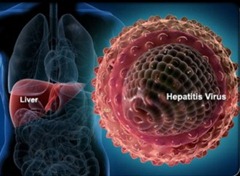By Tang Yew Chung | Featured Research
June 1, 2012
Two teams of Asian researchers have independently completed whole-genome sequencing studies of a type of liver cancer commonly caused by hepatitis virus infection.
AsianScientist (Jun. 1, 2012) - Two teams of Asian researchers, one Japanese and the other from China and Singapore, have independently completed large-scale, whole-genome sequencing studies of a type of liver cancer commonly caused by hepatitis B virus (HBV) and hepatitis C virus (HCV) infection.
Both studies were published this week in Nature Genetics, providing important insights into how hepatitis viral infection causes hepatocellular carcinoma (HCC), the most common form of liver cancer worldwide, and may lead to improvements in diagnosis and treatment.
Individuals infected with HBV and HCV are known to have a significantly higher risk of developing HCC. In countries like China and other parts of Asia where hepatitis B is endemic, HBV infection is the predominant cause of HCC.
In Japan, which has the highest HCC rates of any industrialized country in the world, HCV infection is thought to be responsible for the majority of cases.
It is thought that the HBV and HCV genomes are integrated into the genome of the human host in a manner that promotes the accumulation of genetic abnormalities, leading to cancer development.
The China-Singapore team studied tumor samples and adjacent normal tissues from 81 HBV-positive and 7 HBV-negative HCC patients while the Japanese team collected tumor and blood samples from 11 HBV-positive HCCs, 14 HCV-positive HCCs, and 2 HCCs that were not associated with hepatitis infection.
Both teams used whole-genome sequencing technologies to identify novel gene mutations that may be responsible for HCC development and pinpoint locations where the viral genome has been integrated into the host genome.
In particular, the China-Singapore team identified characteristics of HBV integrations that may help the virus to control specific genes in the host tumor, providing new insights into the mechanisms through which HBV integration promotes cancer.
“A deep understanding of the recurring HBV insertions in HCC will help the research community identify novel molecular targets in liver cancer, for which effective treatments are still limited,” said John Luk, a leader of the China-Singapore collaboration.
The articles can be found at: Fujimoto et al. (2012) Whole-genome Sequencing Of Liver Cancers Identifies Etiological Influences On Mutation Patterns And Recurrent Mutations In Chromatin Regulators and Sung et al. (2012) Genome-wide Survey Of Recurrent HBV Integration In Hepatocellular Carcinoma.

No comments:
Post a Comment